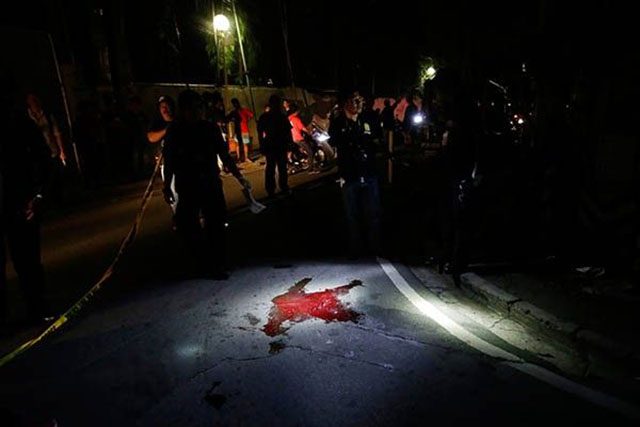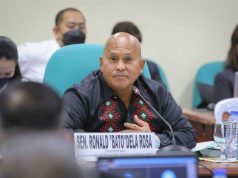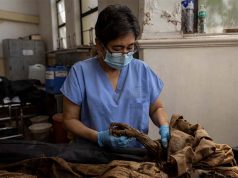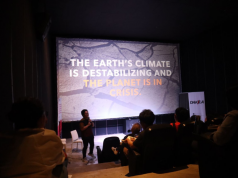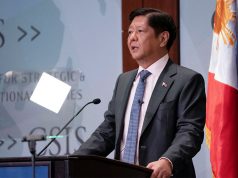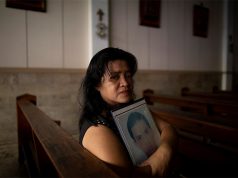Human rights groups and advocates are reflecting on the state of human rights in the Philippines and around the globe as the world celebrated International Human Rights Day on Monday in the Philippines.
December 10, 2018 marks the the 70th year since the adoption of Resolution 217 or the Universal Declaration on Human Rights by 48 member nations of the United Nations third assembly on December 10, 1948.
The document, considered the first of its kind to recognized by states, identified the fundamental human rights to be universally protected.
Although it does not create legal obligations for UN member-nations, the document has influenced both the domestic human rights laws of the countries and credited with influencing international laws’ concept of human rights. It is considered the first of the different documents that make up the International Bill of Rights.
An online campaign using the hashtag #standup4humanrights has engaged various groups and advocates.
The Commission on Human Rights of the Philippines shed light on the relevance of the declaration in the formation of human rights around the world in a post on Facebook.
“This document became the basis of different agreements for maintaining peace and respect for human rights around the world,” it wrote in a post containing the core components of the 1948 declaration’s 30 articles.
Many in the Philippines took the opportunity to shed light on the various alleged human rights abuses taking place in the country. The group Stop Killing Farmers released an infographic on the human rights abuses against farmers and indigenous peoples around the world.
It shows that the Philippines has the highest number of killings related to land conflicts across the globe, with 33 killings so far in 2018.
Bagong Alyansang Makabayan Secretary General Renato Reyes Jr. in a tweet called to resist dictatorship “amidst the worsening situation” on Human Rights Day.
Today is International #HumanRightsDay. Amid the worsening situation, “Defend Human Rights! Resist Dictatorship!” #StopTheAttacks
— Renato Reyes, Jr. (@natoreyes) December 9, 2018
Detained Sen. Leila de Lima, a former human rights chair, said in a statement that there was an absence of “human rights leadership” in governments around the world.
“Some governments themselves, led mostly by populist demagogues and autocrats, have actually attacked their own people. And, far too many politicians and so-called leaders – including those in my country, the Philippines – seem to have forgotten the UDHR,” she wrote in her statement.
Read: “Stand Up for Human Rights: The Power and Duty to Make the World Safer, Just and Humane”, Sen. Leila M. de Lima’s Message for the 70th Anniversary of the Universal Declaration of Human Rights pic.twitter.com/sBFEPBRGOz
— Leila de Lima (@SenLeiladeLima) December 10, 2018
Executive Secretary Salvador Medialdea said in a statement on Monday that the drug war launched by the administration of President Rodrigo Duterte, to which 10,000 deaths from extrajudicial killings have been linked, actually protected the human rights of the innocents from crime and the corrupting influence of illegal drugs.
The International Criminal Court is currently conducting an initial review into the drug war and the alleged crimes against humanity arising from it.
Human rights problems in the Philippines
Apart from tens of thousands of alleged human rights abuses linked to the war on drugs, some groups claimed that disregard for human rights runs deep in the country. A study by the Pesticide Action Network found that the Philippines was the most dangerous country in the world for farmers, indigenous rights and environmental activists.
Rights group Karapatan in May 2018 submitted a report claiming a high number of human rights abuses in the island of Mindanao after Martial Law was declared in the area. According to the group, there were 49 cases of extrajudicial killings, 22 cases of torture, 116 victims of frustrated extrajudicial killings, 89 victims of illegal arrest and detention and 336,124 victims of indiscriminate gunfire and aerial bombings since Martial Law was declared following the Marawi Siege of 2017.

